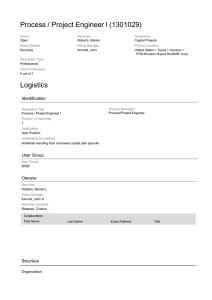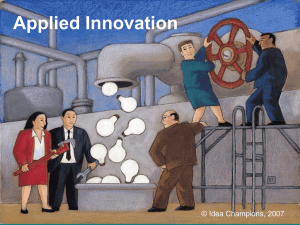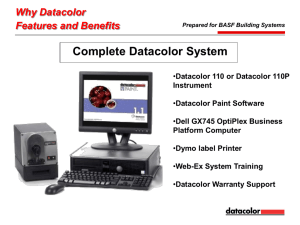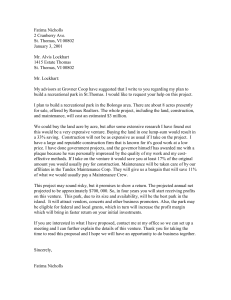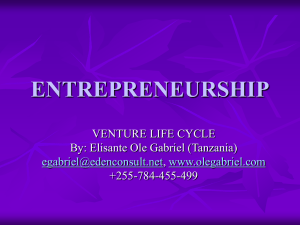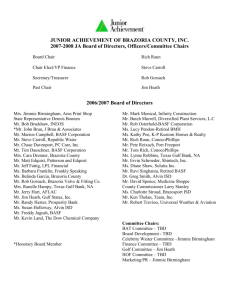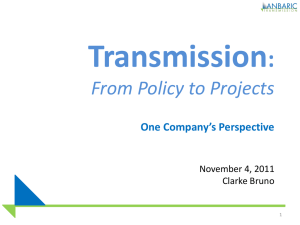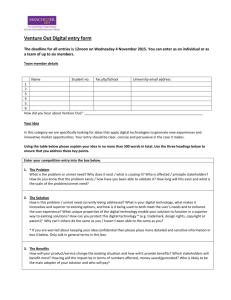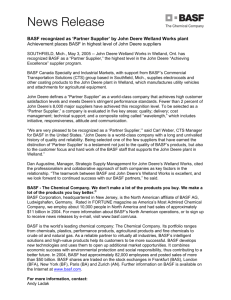DOC - Europa
advertisement
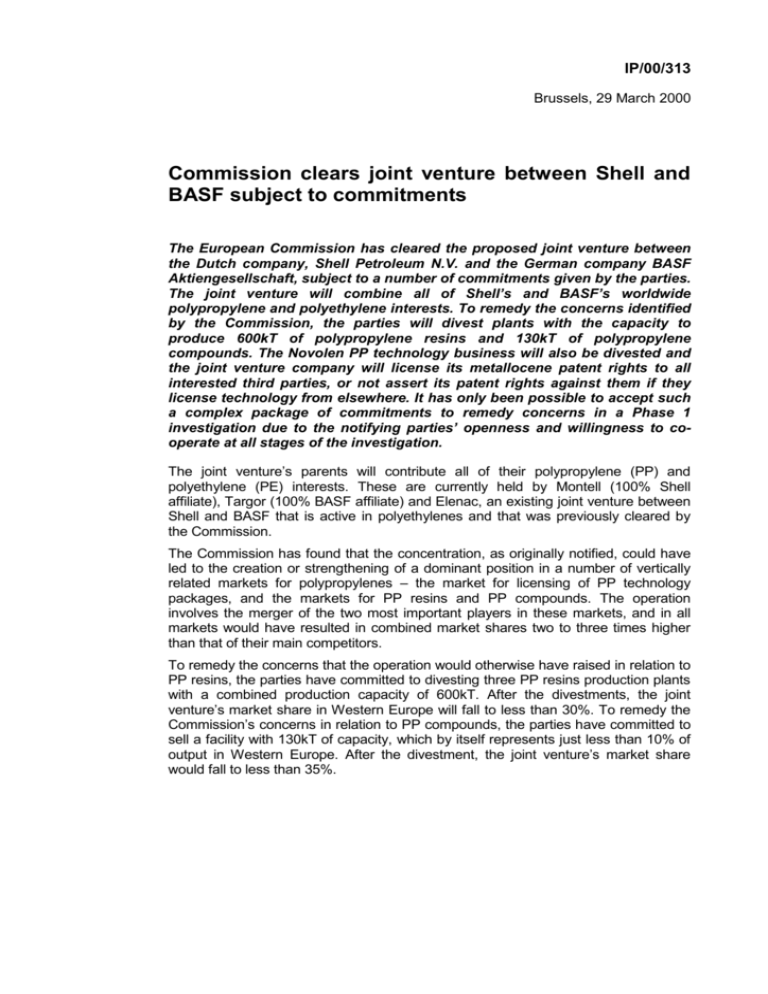
IP/00/313 Brussels, 29 March 2000 Commission clears joint venture between Shell and BASF subject to commitments The European Commission has cleared the proposed joint venture between the Dutch company, Shell Petroleum N.V. and the German company BASF Aktiengesellschaft, subject to a number of commitments given by the parties. The joint venture will combine all of Shell’s and BASF’s worldwide polypropylene and polyethylene interests. To remedy the concerns identified by the Commission, the parties will divest plants with the capacity to produce 600kT of polypropylene resins and 130kT of polypropylene compounds. The Novolen PP technology business will also be divested and the joint venture company will license its metallocene patent rights to all interested third parties, or not assert its patent rights against them if they license technology from elsewhere. It has only been possible to accept such a complex package of commitments to remedy concerns in a Phase 1 investigation due to the notifying parties’ openness and willingness to cooperate at all stages of the investigation. The joint venture’s parents will contribute all of their polypropylene (PP) and polyethylene (PE) interests. These are currently held by Montell (100% Shell affiliate), Targor (100% BASF affiliate) and Elenac, an existing joint venture between Shell and BASF that is active in polyethylenes and that was previously cleared by the Commission. The Commission has found that the concentration, as originally notified, could have led to the creation or strengthening of a dominant position in a number of vertically related markets for polypropylenes – the market for licensing of PP technology packages, and the markets for PP resins and PP compounds. The operation involves the merger of the two most important players in these markets, and in all markets would have resulted in combined market shares two to three times higher than that of their main competitors. To remedy the concerns that the operation would otherwise have raised in relation to PP resins, the parties have committed to divesting three PP resins production plants with a combined production capacity of 600kT. After the divestments, the joint venture’s market share in Western Europe will fall to less than 30%. To remedy the Commission’s concerns in relation to PP compounds, the parties have committed to sell a facility with 130kT of capacity, which by itself represents just less than 10% of output in Western Europe. After the divestment, the joint venture’s market share would fall to less than 35%. Both BASF and Shell currently license the technology to produce polypropylenes and supply the associated traditional, Ziegler-Natta, catalysts. Since a technology licensee will initially use the catalysts supplied by the licensor, the Commission considers that the relevant market should include the licensing of technology and the supply of catalysts. Shell’s Spheripol technology has been the leading global technology for at least 15 years and the combination of this technology with BASF’s Novolen technology raised concerns about the effects of the operation on competition. To remedy these concerns, the parties have committed to divest the Novolen technology business. BASF, through Targor, also holds a strong suite of patents relating to the newest family of PP catalysts – metallocene catalysts. BASF’s patents, together with the patents held by other companies, have created the situation that none of the individual patent owners is free to use or license metallocene catalyst without the consent of the others. By itself, BASF’s patents could be used to prevent other licensors or producers from developing metallocene catalysts. The Commission considers that the combination of this strong patent position with the position that the joint venture would hold in relation to traditional catalysts and technology would raise serious concerns about the effect of the operation. To remedy these concerns, the parties have committed to license the BASF/Targor patents to all third parties who wish to license them directly. In addition, the parties will not assert these patents against those third parties who wish to license technology from other players in the technology market. Together, these commitments will remove the joint venture’s ability to prevent the development of metallocene catalysts. Finally, the package of commitments to which the parties have committed to in order to remedy the Commission’s concerns in this case is highly complex, especially given that an in-depth investigation has not been carried out. Such a complex package can only be accepted at this stage because the parties have been open with the Commission about the problems that the operation would raise, they discussed these problems and potential remedies with the Commission before submitting formal notification of the operation, and they have subsequently cooperated at all stages of the investigation. Without such cooperation, it is highly unlikely that the Commission’s concerns about the operation could have been eliminated at this stage. The Commission has decided to clear the operation subject to the fulfilment of these commitments, and to declare it compatible with the Common Market. 2
